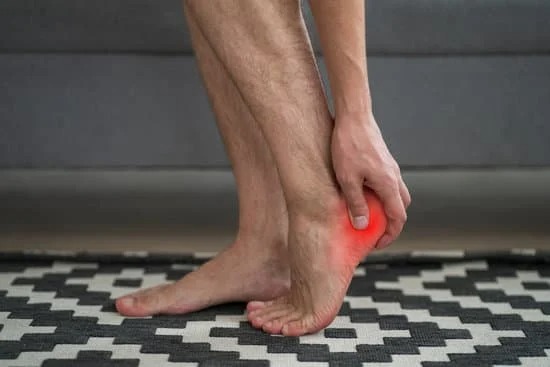Signs You Need a Podiatrist for Foot and Ankle Pain
Persistent foot or ankle pain shouldn’t be brushed off as a minor inconvenience. Whether it’s a dull ache, sharp discomfort, or recurring swelling, these symptoms can indicate underlying issues that require professional attention. Many people delay seeking help until the pain interferes with daily activities—but early evaluation can prevent long-term damage. A podiatrist is specially trained to diagnose and treat conditions affecting the feet and ankles, offering targeted solutions to restore mobility and comfort. If you’re unsure whether your symptoms warrant a visit, here are clear signs it’s time to see a specialist.
Pain That Lasts More Than a Few Days
Foot and ankle pain that lingers beyond a few days could signal more than just temporary strain. Many people assume soreness will fade with rest, but lingering discomfort might indicate inflammation, joint issues, or even stress fractures. When pain persists, it disrupts how you walk, which may lead to further complications in your knees, hips, and back. These subtle changes in movement can place more pressure on other joints and muscles, worsening the issue over time.
Visiting a podiatrist can help determine the exact source of the problem and prevent it from escalating. A specialist can evaluate your foot structure, perform imaging if needed, and provide a plan tailored to your needs. Ignoring prolonged pain only delays healing. If you’re still limping or compensating after several days, it’s time to take that discomfort seriously and book a consultation.
Swelling or Redness That Doesn’t Improve
Swelling or redness that doesn’t fade may indicate something deeper than simple overuse. These symptoms often point to infections, circulation problems, or soft tissue injuries that require specialized care. If the area feels warm to the touch or becomes increasingly painful, it’s a warning sign your body is reacting to an internal issue. Applying ice or elevating the foot might offer brief relief, but persistent swelling is rarely something to ignore.
A podiatrist can identify whether the swelling stems from an injury, gout, tendonitis, or other conditions. With diagnostic tools and targeted treatments, they can address the root of the problem—not just the symptoms. Delaying care could lead to complications that affect mobility and long-term joint health. If you’ve tried home care and the swelling remains, it’s time to get a professional evaluation and treatment plan.

Difficulty Walking or Bearing Weight
When walking becomes painful or you find yourself limping to avoid pressure, it’s a sign that your body needs help. Difficulty bearing weight may point to sprains, fractures, ligament damage, or structural imbalances in the foot. Often, individuals try to push through the discomfort, hoping it will resolve. But when even short walks feel exhausting or unstable, it’s a red flag.
A podiatrist can assess how your feet are functioning and identify any abnormalities affecting your movement. They’ll guide you with a treatment approach that could include bracing, orthotics, or physical therapy. Delaying care could cause a temporary condition to evolve into a chronic one. If your steps are unsteady or every stride feels like a struggle, don’t wait until it gets worse—seek expert care and start the path to recovery.
Changes in the Appearance of Your Feet
Noticeable changes in how your feet look—such as a new bump, flattened arches, or crooked toes—shouldn’t be brushed aside. Structural shifts can develop gradually and often indicate underlying problems like bunions, hammertoes, or fallen arches. These conditions can worsen without proper attention, making walking more painful and affecting your overall posture and alignment.
A podiatrist can evaluate these physical changes and explain what they mean for your foot health. Early intervention can stop minor changes from progressing into more serious deformities. Whether the cause is genetic, injury-related, or due to footwear habits, tailored treatment is essential. If something looks or feels off in your foot’s structure, it’s a good idea to schedule an exam and get answers before it becomes more difficult to correct.
Numbness or Tingling Sensations
Tingling or numbness in your feet might seem minor, but these sensations are often linked to nerve issues. Conditions like peripheral neuropathy, tarsal tunnel syndrome, or even diabetes-related nerve damage can create symptoms that go unnoticed until they interfere with daily life. It’s not just about discomfort—this loss of feeling can increase your risk of injury or infection without realizing it.
A podiatrist can perform neurological tests to understand the extent of the sensation loss and what’s causing it. Early diagnosis and intervention can prevent long-term complications, especially in cases involving diabetes or circulation problems. Don’t wait for tingling to become constant or lead to wounds that won’t heal. Getting to the root of the numbness can help restore proper sensation and foot safety.
Recurring Heel Pain That Disrupts Activities
Heel pain that comes and goes—or gets worse during certain activities—can interfere with your ability to move comfortably. This kind of discomfort is often linked to plantar fasciitis, Achilles tendonitis, or bone spurs. These issues can flare up with standing, running, or even walking short distances. Many individuals try stretches or over-the-counter inserts with little long-term relief.
A podiatrist will examine your heel and surrounding tissues to identify the cause and severity. With a combination of therapies such as custom orthotics, physical therapy, or anti-inflammatory care, you can regain comfort and function. Ignoring the pain may lead to compensation injuries elsewhere in the body. If heel discomfort is affecting how you live or exercise, professional treatment can get you back on your feet.

Injuries That Don’t Heal as Expected
Sometimes what seems like a mild injury—a twist, sprain, or bruise—doesn’t improve with time. If pain and limited mobility persist beyond what’s normal for healing, there could be complications like a torn ligament, hidden fracture, or untreated inflammation. Many people delay seeking care, assuming rest is enough, but unresolved injuries can create chronic problems.
A podiatrist can re-evaluate the injury and ensure it’s healing properly. They may recommend imaging to get a clearer picture and adjust the treatment to speed up recovery. Waiting too long may lead to stiffness, instability, or ongoing pain that limits activity. If your foot or ankle injury is lingering longer than it should, don’t second-guess—get it checked and avoid long-term setbacks.
Pain That Interferes With Daily Activities
When foot or ankle pain stops you from enjoying your usual routines—whether it’s walking, standing at work, or playing with your kids—it’s time to seek expert help. Discomfort that affects your daily life shouldn’t be considered normal or something to push through. Left unaddressed, the pain may intensify or cause problems in other parts of your body.
A podiatrist can pinpoint the source and offer solutions that restore comfort and mobility. You don’t need to settle for living in pain or relying on temporary fixes. From personalized orthotics to targeted therapies, relief is possible. If your foot issues are keeping you from doing the things you love, professional care can make all the difference in restoring your active lifestyle.
Conclusion
Foot and ankle pain can quickly disrupt your routine and reduce your overall quality of life. When discomfort becomes persistent, it’s important to take the next step toward proper care. At Specialist Doctors Group in Plant City, FL, our experienced podiatrists are ready to diagnose the issue and guide you through effective treatment options tailored to your needs. Ignoring foot pain can lead to long-term complications, but early intervention can restore comfort and mobility.
Whether it’s ongoing heel pain, swelling, or difficulty walking, don’t wait for symptoms to worsen. Let us help you get back on your feet with expert care and compassion. Schedule your appointment today by calling (813)719-7325 and take the first step toward pain-free living with the help of our trusted medical team.

